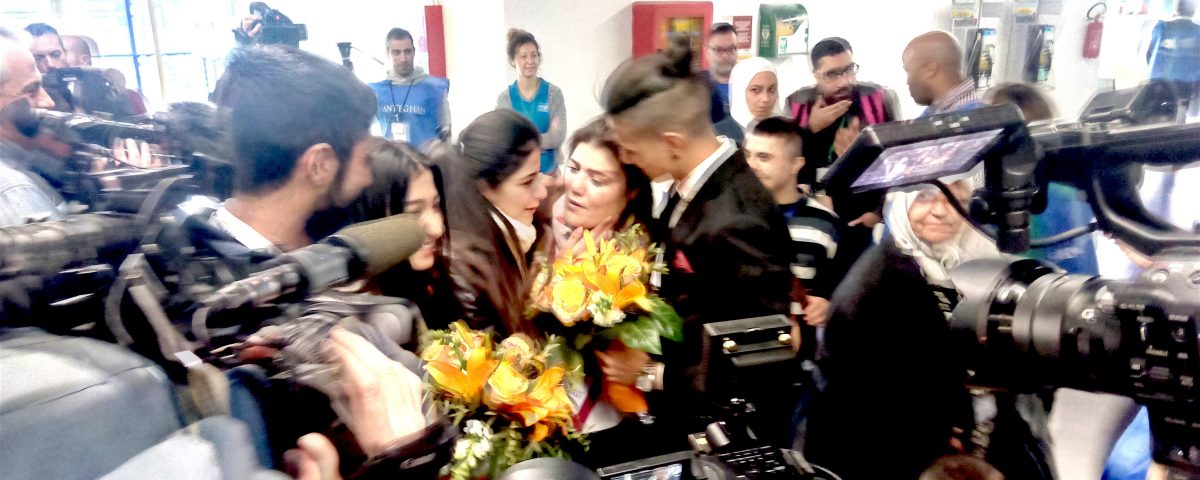- Mediterranean Hope - Federazione delle chiese evangeliche in Italia
- mh@fcei.it
#CorridoiUmanitari. 2,200 People Entered Europe in a Safe and Legal Way
(NEV) 70 new arrivals in Italy, including 25 minors, about 1,500 refugees rescued. Their stories: Mouna, Dina and Reem travelling with their old mother and a brother with Down syndrome, and a Sunni-Shiite family fleeing the war. The FCEI, the Community of Sant’Egidio and the Tavola Valdese together for security and integration.
Three sisters (an IT engineer and two laboratory analysts) have arrived this morning at Fiumicino via the 20th Ecumenical Humanitarian Corridor, which allowed the arrival of 70 refugees, including 25 children in a legal and safe way. Together with those three women, there was their old mother and a brother with Down syndrome who suffered heavy discrimination because of his Trisomy 21. «I would like to practise a sport and perhaps a little job suitable for me.» The boy said after the press conference that was held today at their arrivals.
The number of people entered Italy goes up to 1,500 (2,200 in Europe) thanks to the commitment of the FCEI, the Community of Sant’Egidio and the Tavola Valdese, that have been working together on the Humanitarian since 2016 in accordance with the Ministry of Foreign Affairs and the Ministry of Interior.
«We know that other European countries look at this model and we are happy with that. So, I want to take this opportunity to reiterate our claim: since the humanitarian corridors work, let’s open more humanitarian corridors! MORE corridors to combat human traffickers; more corridors to welcome people who have the right to international protection under a legal a safe way; more humanitarian corridors for a well-run reception system that will support you along your journey in Italy.» Christiane Groeben, Vice President of the FCEI, said during her welcoming speech.
Among the refugees who landed this morning at the airport, almost all Syrian, and largely reported thanks to the collaboration of the UNHCR, 51 people will be hosted at the structures made available by FCEI and Diaconia Valdese (CSD) according to the model of widespread reception. Today, they will go to Bergamo, Cesano Boscone, Corsico, Genoa, Pinerolo, Reggello and Turin. Among then also a family (mother, father and son), she is Sunni, he is Shiite. He worked as a technician diver for the maintenance of an important Syrian water plant and she at a hairdressing salon. Because of the bombing they escaped, literally walking on the corpses. In Lebanon they were forced to live in two separate houses. The husband in an Armenian neighbourhood with four other men, in a room that was 5 meters long and 5 meters wide, without kitchen and with an outside bathroom while the wife at an apartment available for free in exchange for help in the store of the owner.
Marco Impagliazzo, the President of the Community of Sant’Egidio reiterated the words of Mrs. Groeben_ « The war divides, the humanitarian corridors unite. » and Donatella Candura, for the Ministry of the Interior said « At the beginning, it will not be easy, but we want to rebuild a world of relationships, dealing with a different society and culture. » Also, Luigi Maria Vignali, General Director for Italians Abroad and Migration Policies participated.
The model of the humanitarian corridors is active in Italy, France, Belgium and Andorra and it involves citizens, churches, parishes, diaconal structures and associations.





